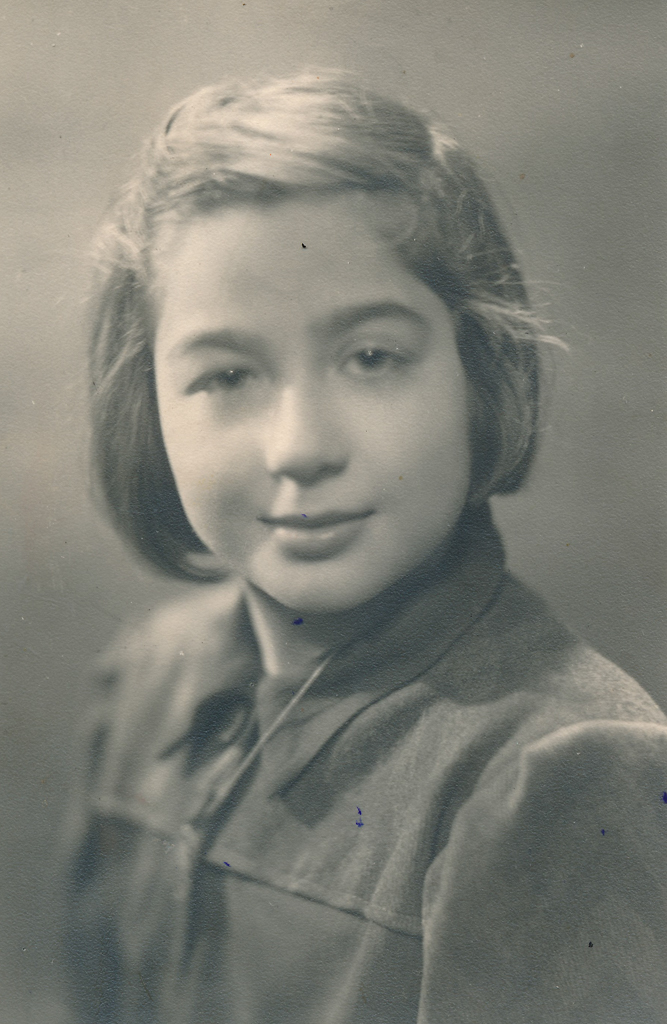I‘ll always have that endless parade of sad people with their bundles in front of my eyes

Stáhnout obrázek
Marta Neužilová was born on 29 July 1932 in Bohušovice nad Ohří as the daughter of a worker Stanislav Klicpera and his wife Olga. Her mother came from a wealthy German-speaking Jewish family, the Beers, while her father was a Czech of non-Jewish origin. When Marta was seven years old, her father died of blood poisoning after a work accident, leaving her mother alone with her four children. During the Protectorate, Olga Klicperová became involved in the activities of the resistance group V boj (Let´s Fight), which helped the families of political prisoners. From the autumn of 1941, she on her own helped Jews arriving in transports to the station in Bohušovice, from where they travelled on foot to the nearby Terezín ghetto. She served them bread and water, obtained from them the addresses of relatives, and later delivered uncensored correspondence and parcels for the prisoners. She also engaged in this activity her eldest son Stanislav and her daughter Marta, who was ten years old in 1942. In August 1942, Olga Klicperová and her two eldest children were arrested on a denunciation. Marta and her brother were interrogated by the Gestapo for several weeks, and their mother was imprisoned in the Terezín ghetto. After a year, Olga Klicperová was transferred to the Jewish cells of the Small Fortress and from there deported to Auschwitz, where she was murdered in December 1943. Marta and her brothers spent the rest of the war with their paternal grandmother. One of the younger brothers, Bedřich, died shortly after his mother‘s imprisonment. The siblings were not allowed to go to school, did not receive food stamps, and gradually their grandmother did not let them leave the house at all. None of her maternal relatives survived the Holocaust. After the war, the children lived under the care of a guardian in a single room, receiving nothing of their mother‘s or their relatives‘ property back. Marta trained as a shop assistant and in 1950 married Karel Neužil, with whom she moved to Prague. They had two children, but divorced in 1960. Marta then worked as an educator in a boarding school and as a hop grower. She graduated from secondary agricultural and secondary pedagogical school. After 1989 she entrusted her memories to historian Anna Hyndráková. She became a member of the Jewish Community, the Hidden Child organization and the International Women‘s Zionist Organization WIZO. In memory of her mother, she had Stolperstein - the Stone of the Disappeared - placed in front of her family home in Bohušovice.








